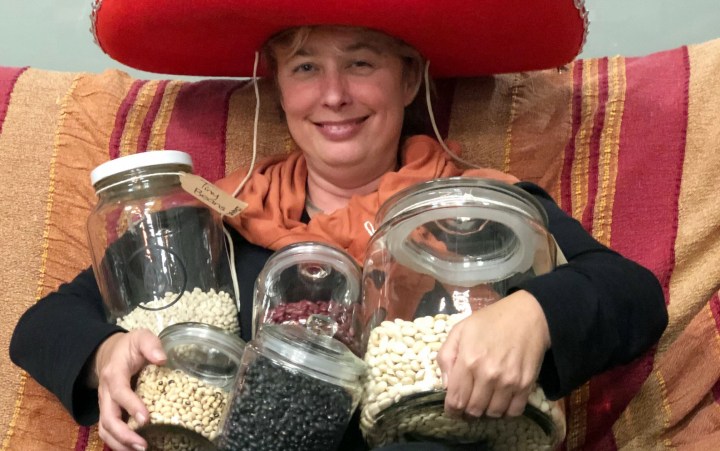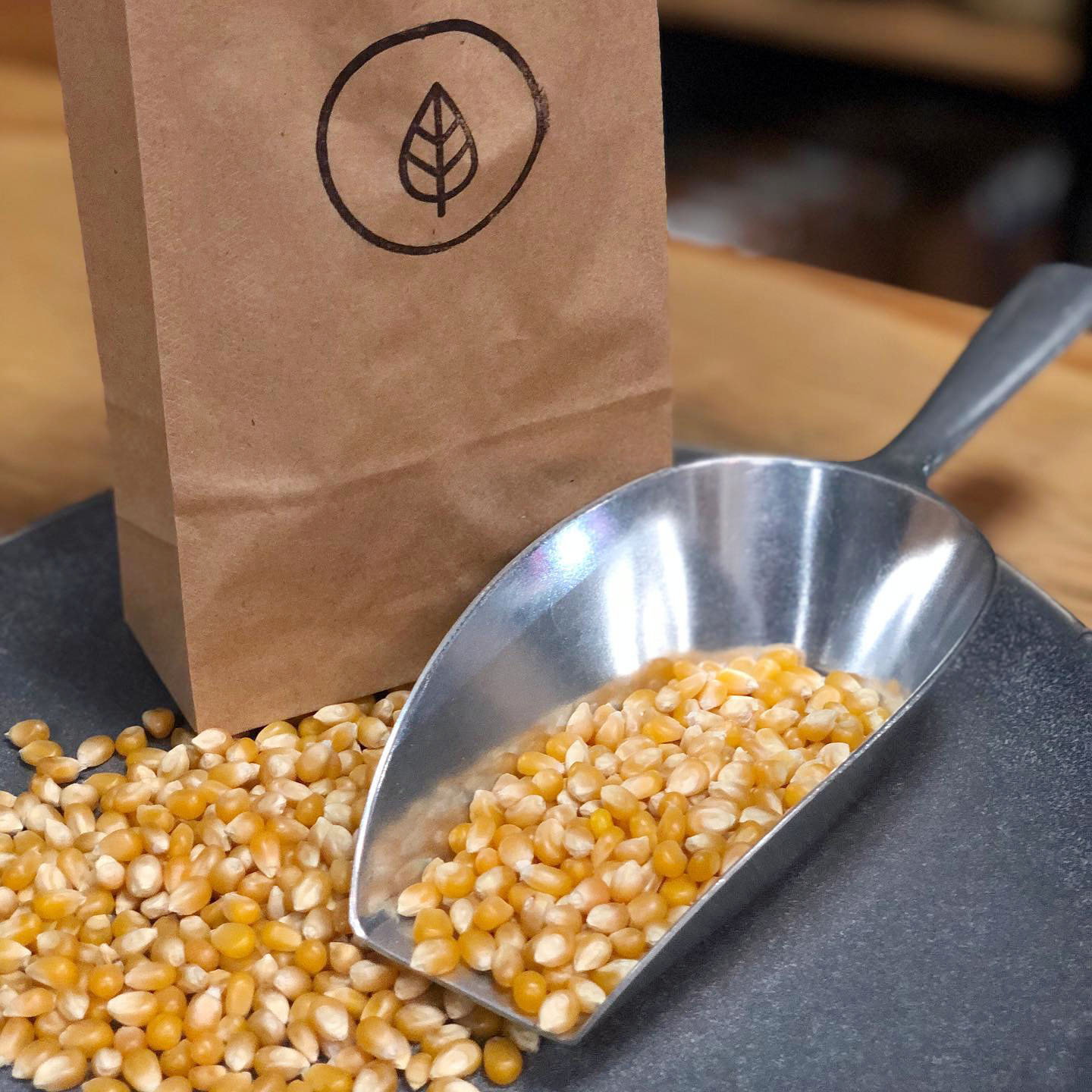OUR BURNING PLANET SOLUTIONS
Single-use scourge: Much of the stuff we buy doesn’t need to be wrapped in plastic

Reduction of plastic use, particularly single-use, could play a significant role in waste reduction, say shop owners who are ushering in a new way of shopping in Durban.
Two Durban shops are taking it upon themselves to combat pollution caused by the everyday use of plastics by urging their customers to join the zero-plastic movement.
For Kim Drennan of the Good Source shop in Hillcrest, defending the planet has always been a priority, so it came as no surprise when she hit on the idea of opening up a green store and getting her family and friends involved.
Drennan convinced her brother, Phillip Botha, and close friends Nicole Benders and Jenny Thomson that this would be a great idea.
“We started our plastic-free grocer out of pure frustration at the lack of availability of anything that wasn’t in plastic. We wanted all the basics and more available without the packaging,” says Drennan.
Years later the team has not backed down. Their hope is to reduce waste, especially unnecessary packaging.
Drennan says it was great to see people welcoming their project with excitement.
The Good Source offers customers an opportunity to shop for foods such as oats, nuts, fruits and other foods without all the plastic packaging.
Consumers are encouraged to bring bottles or jars for storing their goods.

People are encouraged to bring their own jars when buying food at zero-waste shops. (Picture: Good Source)
While some might complain that plastic-free shopping is expensive, the environment seems to be benefiting from the amount of plastic being chucked out.
“Zero-waste shopping is what we should all be aiming for if we want to start undoing the pollution and waste on our beautiful planet,” says Drennan.
According to the South African Plastics Recycling Organisation (Sapro), only 7.5% of South Africans are recycling and over 90% of the waste produced ends up in landfill sites.
Plastic-free shopping discourages the use of items such as plastic straws, plastic shopping bags, plastic cutlery and other forms of plastic. Most times these items are used once and thrown out – they never make it to recycling.
The World Wildlife Fund says only 16% of plastic in South Africa is recycled. The rest ends up in dustbins and, ultimately, landfill sites.
Litter such as chip packets and sweet wrappers are often carried by the wind and end up in storm water drains and from there into rivers and finally the sea.
The WWF says eight million tonnes of plastic end up in the oceans each year, with a serious impact on marine life.
Drennan, who has been in business for at least 20 years, has always had an interest in preserving the planet and worries about the damage plastic waste is having on the environment. She started selling compactors and balers into retail stores to encourage recycling. She says that as their family grew and their grocery list got longer, she realised that recycling was not the answer – “we needed to go a step further”.
She says living waste-free is more than just living plastic-free.
“Water conservation, composting to further lighten the load on landfills, going solar if you can, are just a few other eco-friendly starts each home can make. I would love to encourage everyone to start at home, make any changes you can. We are in this together,” she says.
Drennan hopes that those who have power will make the big changes that are needed urgently all over the world.
While some believe plastic-free living is expensive, Drennan says people expect to save without packaging but due to the low price of plastic, they end up not saving that much.
“I know some people expect to save without packaging, but the reality is that plastic is so cheap that there isn’t a savings on the packaging – or even on no packaging – but we do strive to keep our pricing in line with what is available at other outlets… but apples need to be compared with apples.
“We stock GMO-free, non-irradiated and organic where possible… these need to be priced compared to other products of the same quality. We do try our best with our pricing,” she says.
Although Drennan and her team pride themselves on buying from local suppliers and small businesses, she says they do buy from reputable and sustainable bigger suppliers that “have pre-packaged goods in big retailers but have been amazing with supplying us with smaller bulk amounts and in reusable packing”.
Her advice to people who are on a plastic-free journey is to start with items they mostly use in their homes – for them, it’s items such as cleaning liquids, oats, olive oil, seeds, nuts and spices. She says it’s important to make these changes first, making the journey a new and fun habit, and then keep going, adding other items to the list. She says another important factor is visiting markets and small vegetable shops to stock up on plastic-free vegetables instead of goods that are already packed.
In Durban North, The Refill Den, a zero-plastic shop is doing its part in motivating consumers to bail on using plastic. Sisters Megan Simpson and Vanessa Law are on a mission to protect the environment. In 2018, after seeing the kind of damage being done due to disposable lifestyles, Simpson began looking into making her own products in an effort to reduce waste.
“Vanessa suggested opening a refill store instead, which would make it possible for other families to reduce their waste too, while supporting small businesses that were already making great, natural products,” says Simpson.
When starting out, the duo was met with mixed reactions as people tried to work out what the shop was trying to achieve. They were told that Durban doesn’t do zero waste and there were a few complaints from the competition. This did not deter them. They believed that change was necessary as there were no zero-waste lifestyle stores in Durban North.
“We believed that our fellow Durbanites would delight in reducing their waste or plastic as much as possible. Not quite as many people have been interested in refilling as we initially thought, but we remain here for those who are. In saying that, it has been amazing to see how many people have found our little shop just by word-of-mouth, which told us that Durban is in fact interested in the betterment of our environment. We hope to keep learning and growing to be able to reach more people,” she says.
They hope to reduce waste and plastic packaging by refilling home cleaning or personal care products “on tap”, and selling foods in bulk by weight. This reduces both packaging and food waste by allowing customers to buy only the amounts they need.
Simpson says eco-friendly products are generally more expensive. She says whether it’s worth it or doable is up to the individual.
She says that in some cases where extra effort is made to reuse the same container instead of the continuous disposal of packaging, the products are usually more affordable. “Bearing in mind that plastic packaging is very cheap to make, we often make products cheaper just to encourage people to refill. We aim to make refilling affordable for all walks of life.”
Most of their products are sustainably sourced. Simpson says their main goal is to ensure that their customers have less to throw away. She adds that one of the reasons for mainly stocking plant-based products is because they are more sustainable.
When speaking to people who want to cross over to plastic-free living, she advises that they should not overwhelm themselves.
“Once you finish a product, see if you can find a more sustainable alternative. Use what you have first. A great way to prevent the soft plastic packaging you do still use from going to landfills or, even worse, the natural environment, is to eco-brick it,” she says.

Plastic-free packaging is used for various foods at the Good Source. (Picture: Good Source)
Working in coffee shops and juice bars in London, she spent many shifts going through waste bins and recycling bins to make sure that things were in the right bins. This was not her responsibility but it was something she felt strongly about. It was after these jobs that Simpson began looking into ways to reduce waste and not relying on recycling alone.
For her, climate change is a huge crisis that needs to be tackled. Simpson says a lot of changes need to be made by large corporations but that individuals can do their bit by reducing plastic use.
A lot of plastic is made with materials from fossil fuels such as ethylene and propylene. She says the whole process from extracting and transporting the fuels to manufacturing the plastic itself creates greenhouse gases, even after the plastic has been discarded.
Much of the discarded plastic ends up in our oceans, which is damaging to animal and plant life. She is convinced that for a significant change to be made to the climate crisis, plastic production, especially single-use plastic, needs to be reduced massively.
Simpson believes that most of the emissions come from the agricultural industry and that it would help if people cut down on meat consumption where possible.
“For humanity to learn to respect Mother Earth by turning our ‘disposable’ ways around and beginning to live more sustainably, remember that we share this planet,” she says. DM/OBP
Have you made a change in your life that will mitigate against the climate crisis, have a positive impact on the environment and could possibly inspire others? Let me know about it on [email protected] using Our Burning Planet Solutions in the subject line




















 Become an Insider
Become an Insider
Every single biscuit from Mantelli’s is wrapped in plastic. Woolworths does the same with rusks. Woolworths will even give you the doughnut you ordered over the counter in plastic. Plastic for a 2 minute journey. New items like harvesting trolleys come wrapped in plastic. Every component in a new PC/laptop comes wrapped in plastic. Milk can be sold in a recyclable bottle but plastic for pasta is not recyclable. Same for yogurt tubs.
The people in charge of these simple decisions simple no care. They are not paid to. They go to work every day and they do what they are being paid to do. Consumers are too lazy/ignorant/stupid to care enough to force them to change.
But change we must!